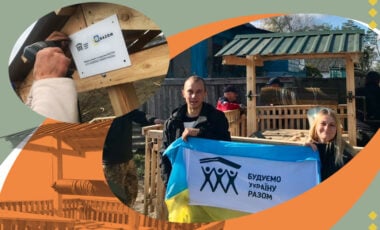Eco-solution: Ukraine adopts mercury regulations to reduce risks to ecology and health

The Verkhovna Rada (Ukrainian Parliament) adopted a draft law on the accession of Ukraine to the Minamata Convention on Mercury as a basis and in general.
The main goal of this initiative is to reduce risks to the countryʼs ecology and citizensʼ health.
What is the problem?
Mercury is widely used in the electrical and instrumentation industry, laboratory and medical practice, agriculture (as part of fertilizers), small-scale gold and silver mining, and other fields.
The metal does not decompose, so when it enters the environment, for example, from thermometers or batteries or during production, it accumulates in the air, water, and soil.
Mercury is easily evaporating, and already at a temperature of 18 ° C, it begins to be released into the atmosphere. Breathing such air is dangerous for a person by accumulating in the body.
When mercury enters the human body through the respiratory system, it accumulates and remains there for life.
Even such a well-known case as a broken mercury thermometer can cause serious intoxication.
What is the solution?
Over 140 countries are signatories of the Minamata Convention, which prohibits the extraction and use of mercury in production with some exceptions.
In April 2023, Ukraine's president Volodymyr Zelensky registered a law on Ukraine's accession to the agreement. The document was adopted on May 29. 299 People's Deputies voted for it.
The law adopted by the parliament assures that Ukraine will stop the production, import, and export of products containing mercury from 2024.
How does it work?
"Ukraine's accession will make it possible to avoid situations like the one with the Radykal plant when hundreds of tons of mercury ended up in the open sky in the Ukrainian capital," commented the environment minister Ruslan Strilets.
The convention provides for a phase-out of the substance, namely:
- its extraction is prohibited,
- a ban on the production, export, and import of mercury-containing products, such as thermometers, pressure gauges, certain types of batteries and fluorescent lamps, barometers, switches, relays, and even cosmetics, are established.
However, there are a few exceptions, including:
- products for military and civil defense needs;
- instruments used for research and calibration as a reference standard;
- those which have no alternative, for example, cold cathode fluorescent lamps, external electrodes for electronic displays and measuring devices, etc.;
- vaccines containing thimerosal as a preservative.
Since October 2013, 141 countries have signed the Minamata Convention. It was named after the city of Minamata in Japan, where almost two thousand people were poisoned by mercury from industrial wastewater in the late 1950s.
The poisoning caused Minamata disease, a syndrome of impaired vision and hearing, and in severe cases, paralysis, and impaired consciousness, the cause of which is poisoning by organic mercury compounds.

















































